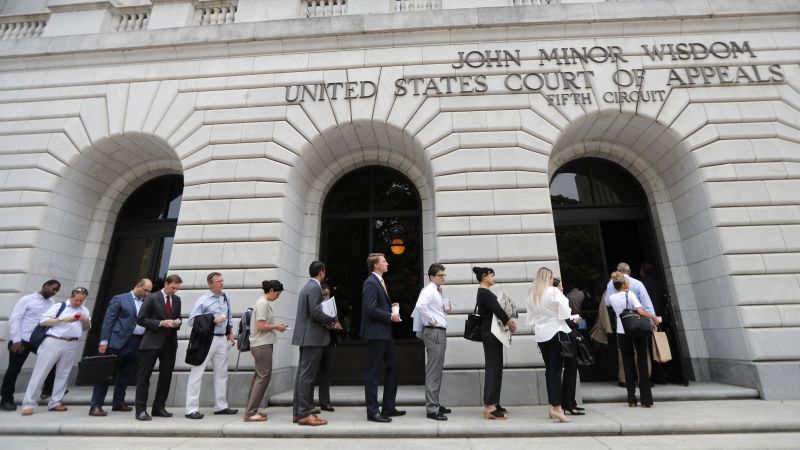A county redistricting plan in Texas that was declared a violation of the Voting Rights Act by a Donald Trump-appointed judge is now being reviewed by a conservative appeals court. The plan, which broke up a majority-minority district in Galveston County, has raised concerns among civil rights advocates who fear that the ruling may further weaken the Voting Rights Act in the South. The plan, which was in effect for the 2024 election due to procedural maneuvering, will be considered for reversal by the 5th Circuit Court of Appeals.
The redistricting plan in Galveston County split up Precinct 3, where Black and Hispanic communities had previously been grouped together to form a significant portion of the county’s population. The Republican-led commission behind the new map faced criticism for actions such as excluding the only Black member and Democrat from the map-drawing process. US District Judge Jeffrey Vincent Brown, who struck down the map, referred to the commissioners’ actions as stark, egregious, and mean-spirited.
The upcoming appeal will focus on whether the Voting Rights Act requires redistricting plans to protect the political power of multiple minority groups in coalition districts. Advocates argue that breaking up coalition districts will harm communities of color that often experience discrimination together. However, opponents contend that the act does not intend for multiple classes of minorities to be considered together and that coalition districts only lead to more litigation.
Despite objections from Black and Hispanic voters, the commission’s actions resulted in white voters forming a majority in all four newly drawn districts. The judge deemed the deliberate extinguishment of Black and Latino voices in the redistricting process as a violation of their political rights. The decision to break up the precinct was made without the preclearance requirement under the Voting Rights Act, which had ensured oversight to prevent racially discriminatory practices.
The legal battle over the coalition districts raises questions about the intention of the Voting Rights Act and its application to protect the rights of minority groups. The challenge in Galveston County highlights the impact of potentially overturning the coalition district mandate throughout the South. The appeal will determine whether race can be used for political gain and the future of majority-minority districts in Texas, Louisiana, and Mississippi.
The Galveston case presents a complex legal argument about the cohesion and history of suffering discrimination between Black and Hispanic voters in the county. The county argues that the lawsuit must fail because the individual populations are too small to bring a successful claim. Supporters of the current 5th Circuit precedent emphasize its importance in preventing discriminatory behavior and upholding the goals of the Voting Rights Act. The outcome of the case will have significant implications for the protection of minority voters and the future of redistricting practices in the South.


